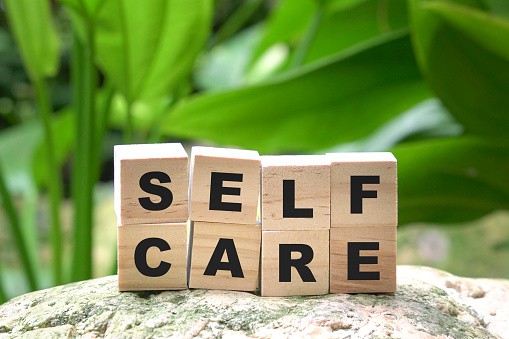
Introduction. Self-care
Counsellors and psychologists cannot stress the importance of self-care enough. Good self-care forms the foundation for physical and emotional wellbeing, as it reduces physical and mental illness. Therefore, it’s important to find relevant information on self-care. In this article we present the basic guideline how to maintain good mental and physical health while living in Dubai.
Good self-care encompasses 4 basic areas: Psychological, Biological, Social and Spiritual.
Psychological self-care
Checking in with your feelings and reflecting on the quality of your life is a vital part of self-care and is key to understanding how to stay healthy mentally and emotionally. Your feelings are a good guide to what is actually going on with you and will tell you if there is an area of life you are not taking care of, a sign not to ignore. If these feelings become overwhelming, seeking support from a therapist Dubai residents trust can be a powerful step for your mental health Dubai professionals often emphasize. Take time to reflect upon your feelings. Verbalize them and your needs to your loved ones, friends, or a professional.
The way you are thinking and the tone of voice you use with yourself is another guide in practicing good psychological self-care. Are you your worst critic, or do you speak encouragingly to yourself? This kind of reflective work is central to the support offered by psychologists in Dubai and through counseling Dubai services. Psychological self-care means that you remain reflective and introspective, verbalize your needs, and set goals for your personal growth. It also involves honoring fundamental needs like the importance of sleep, which is crucial for cognitive function and emotional regulation.
Do not hesitate to reach out to a psychologist for a mental health assessment if you have thoughts, feelings, or physical symptoms that persistently impact your quality of life and might even stop you from fulfilling your human potential. Working through mental health concerns in a safe, non-judgmental setting is an important part of psychological self-care.
Biological self-care
- Seek preventative healthcare (annual routine check-ups/medical and dental)
- The Centers of Disease Control and Prevention (USA) is a reliable source of information. You can consult with your doctor on this topic and find information this website for age specific routine examinations.
- Seek medical advice and following through when feeling unwell.
- Get sufficient sleep (about 8 h average)
- See the CHMC article on Sleep and Sleep Disorders.
- Healthy Eating. The Center of Disease Control (CDC) has made up-to-date nutrition guidelines available. You can also consult any licensed and qualified nutritionist.
- Regular Exercise. The Office of Disease Prevention and Health Promotion (USA) has up-to-date age specific information on healthy physical activity
- Tobacco Free Living
- Quitting smoking has immediate positive impacts on physical health.
- Preventing abuse of substances
Social self-care
Feeling connected to friends and family is a very large component of mental and physical well-being. The question arises: What is loneliness? Loneliness is a state of painful isolation, of feeling cut off from others. However, solitude can be quite positive. Inner-directed solitude can be characterized by self-discovery and inner peace. Outer-directed solitude can refer to spirituality or allow us to reflect on the world around us. Solitude is usually a matter of choice; loneliness is not.
Lonely people tend to spend a lot of time alone during their free time. They eat alone, do not partake in social activities, and do not have deep connections to other people. Research tells us that loneliness is linked to depression and physical illness. In particular, it is evident that stress is implicated in mental and physical illness. People who have a support network of family and friends remain healthier, as they can manage their stress better (Rathus, Nevid and Fichner-Rathus, 2005).
At times, people are thrown into loneliness due to geographical moves. Sometimes they are misunderstood by their peers and feel rejected by others. This fear is often connected with self-criticism of social skills and expectations of failure in relating to others (Vorauer et al., 2003).
Coping strategies by Rathus et al., (2005):
- Challenge your feelings of pessimism. Things will happen when you make them happen.
- Challenge your cynicism about human nature. Find people who possess the values that you have.
- Challenge the idea that failure in social relationships is unbearable and is thus a valid reason for giving up on them. We must all learn to live with some rejection. Continue to look for the people who possess the qualities you value and who will find things of equal value in you.
- Get out among people. Join a Meet-Up group (i.e. see Meet-Up Dubai), do volunteer work, join a group to worship with, take up a team sport, or discover hobbies that require multiple people.
- Be assertive. Express your genuine opinion.
- Become a good listener.
- Use positive verbal and non-verbal communication.
- Give people the chance to know you. Be authentic.
- Fight fair. Friends will inevitably disappoint us, so use a solution focused discussion to solve the problem.
- Remember that you are worthy of friends
Spiritual self-care
Part of our self-care is of a spiritual nature. Dr. Moretz (George Mason University) once asserted: We all need a spirituality/religion/or philosophy of life. He then said to imagine a patch-work blanket. Over the years patches come off, and we replace them. Or patches curl up and we sew them back on. The essence, though, is that the blanket keeps us warm.
Over the course of a lifetime, we can deepen our religious and spiritual beliefs and feel connected to something higher than ourselves. We can take solace in prayer and meditation.
You deserve to practice self-care to optimize your physical and mental health!

Dr. Annette Schonder
Clinical Counsellor,
Marriage Therapist, Hypnotherapist
(American Board)
Call +971 4 457 4240
Sources
Centers of Disease Control: https://www.cdc.gov/healthyweight/healthy_eating/index.html
Smokefree.gov. https://smokefree.gov/tools-tips/get-extra-help/free-resources
US Department of Health and Human Services: https://health.gov/PAGuidelines/


